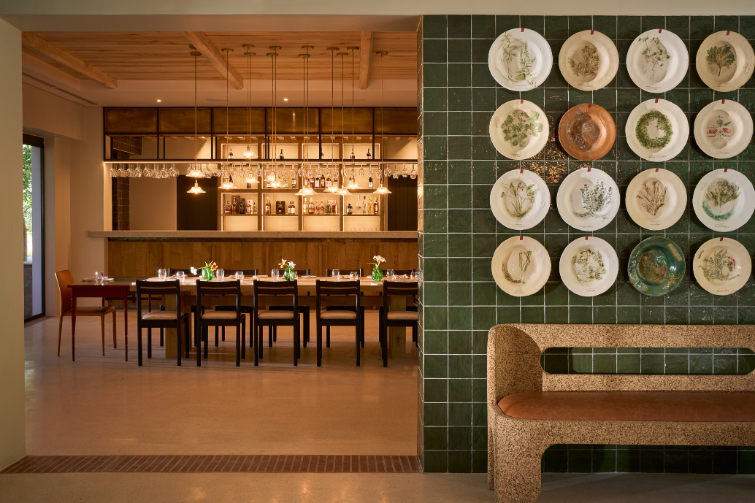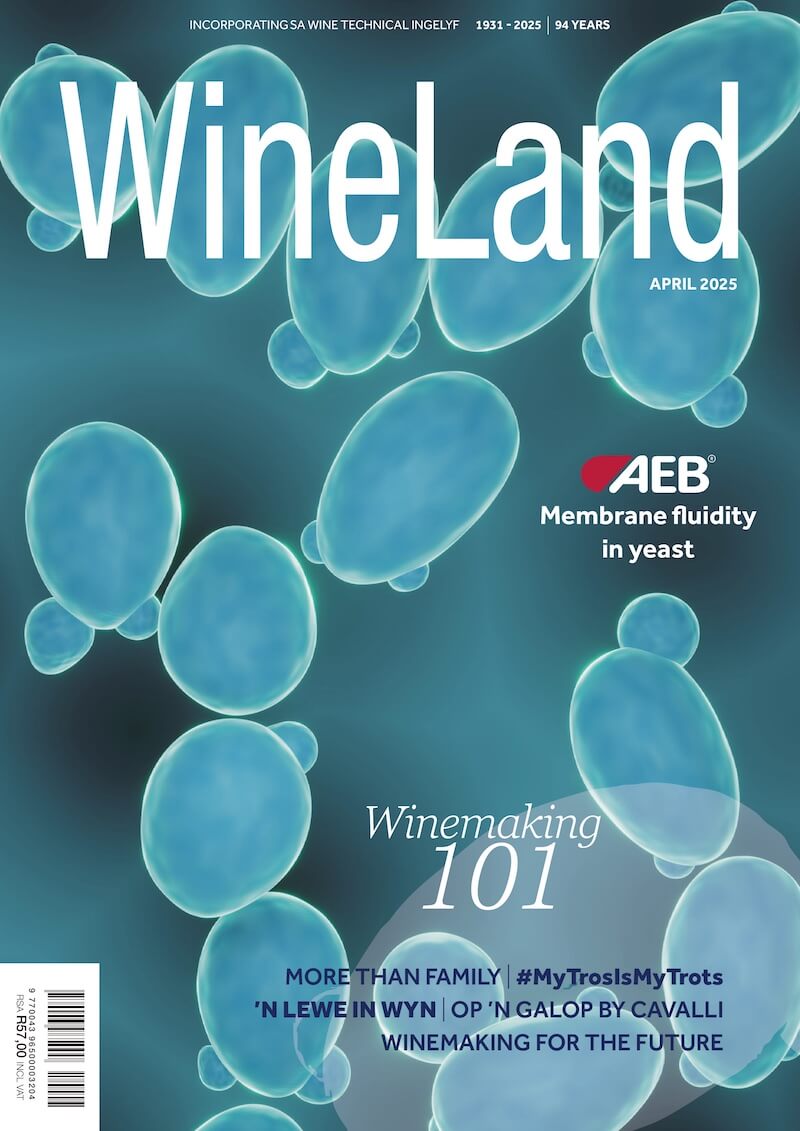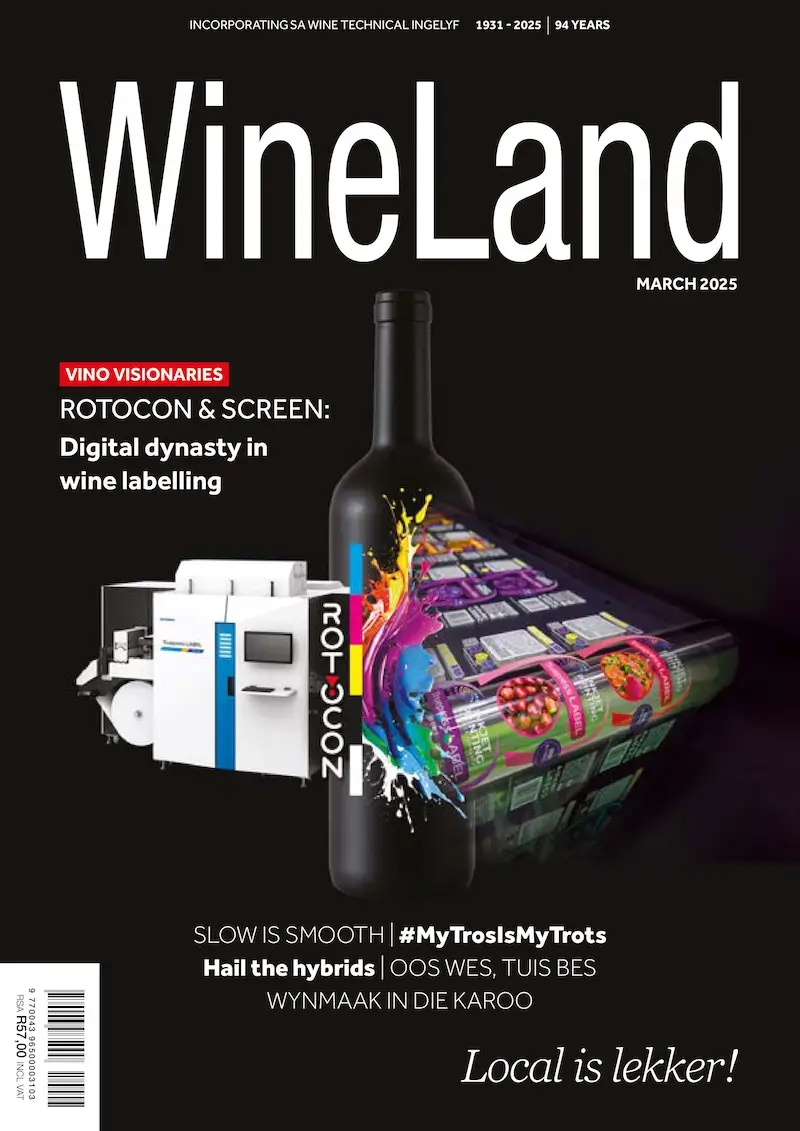The topic of non-fungible tokens (NFTs) is no longer limited to excited conversations among computer geeks and cryptocurrency traders. With Africa’s first NFT auction including fine wine, the new way of doing business has also arrived in the Cape Winelands.
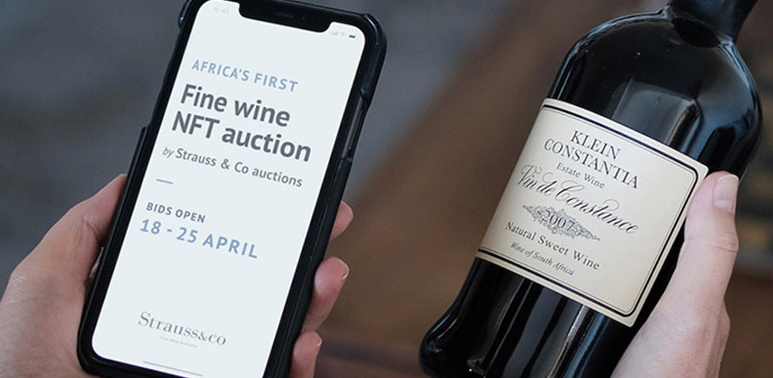
Strauss & Co recently partnered with Klein Constantia (among others) to offer South Africa’s first fine wine auction using non-fungible tokens. (Photo credit: Wine Cellar)
Non-fungible tokens (NFTs) are an efficient way to package real-world assets, such as a collection of wines, for trading and investment.
Although they’ve been around since 2014, NFTs have become an increasingly popular way to buy and sell digital artwork. For collectors, it represents provenance or proof of authenticity and ownership. The same applies to wine.
Strauss & Co recently partnered with five iconic wine estates to offer South Africa’s first fine wine auction using non-fungible tokens. Klein Constantia’s offering comprised the first 40 vintages of its legendary sweet wine, Vin de Constance.
“This was a very exciting and ground-breaking opportunity for us,” says CEO Steve Cowley. “NFTs are a highly efficient method of packaging a collection of wine for trading and investment. The NFT market is thriving globally, and by choosing this format we’re able to expose our iconic Vin de Constance to collectors and enthusiasts around the world.”
How it works
The digital contract, stored on the blockchain, includes all the provenance, pricing, transaction, sensorial and aging information, explains Roland Peens, CEO of Wine Business Advisors and Strauss & Co Fine Wine Auction stakeholder.
“This importantly authenticates the bottles within the NFT, since all the wines were selected from the estate’s library stocks, corresponding to each bottles’ seal-code. The transactions are extremely cheap and fast, and don’t add any marginal energy cost.”
“Each bottle that’s drawn from the stock is “burned” and no longer exists. Ownership is transferred on a sale, and the NFT’s owner becomes the only ‘key-holder’.”
Risks and advantages
The absence of intermediaries means fees are almost negligible and transactions can occur almost instantly anywhere in the world, Roland says. “Its appeal is the ability to reach new customers, add liquidity to the market and increase efficiency to wine transactions.”
“The Strauss & Co Fine Wine NFTs are stored in a custodial wallet (hot wallet), on the clients behalf, or sent to a cold wallet,” says Roland. “If you choose your own cold wallet as storage and you lose your key to the NFT, it cannot be recovered.”
“Cold wallets have the benefit of maximum security, however, as hot wallets do a have an element of security risk.”
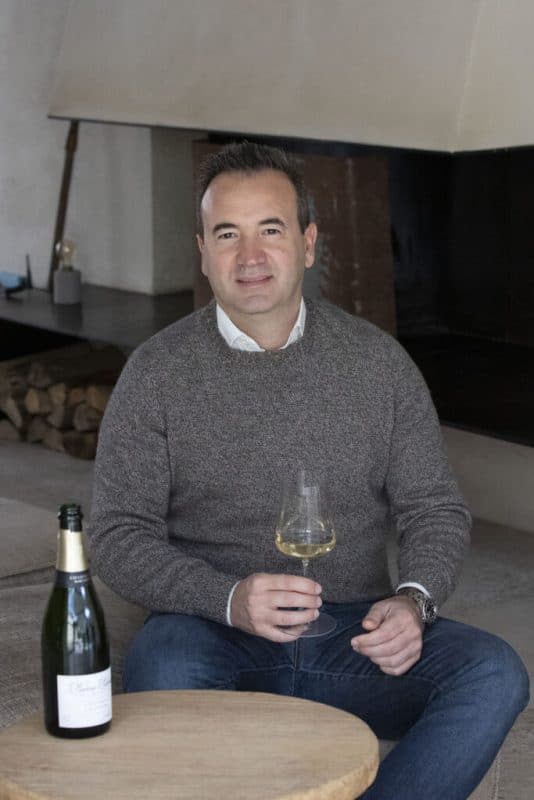
Alfonso de Gaetano, Founder of Crurated wine club.
NFT trade in action
Crurated is a next-gen, London-based wine club that employs blockchain and NFT technology to make wine purchasing as seamless and secure as possible.
Crurated developed a platform that offers clients an accompanying NFT with each purchase. The NFT verifies the bottle’s authenticity and provides other important details including ownership history, vintage, vineyard location, varietal, and other key details.
“As a collector of fine wine, I believe that winemakers are artists,” explains Alfonso de Geatano, founder of Crurated. “Collectors want to know that the wine they’re buying is authentic. As wine moves through the collector value chain, NFTs are recorded and/or updated on the blockchain each time wine changes hands.”
“As a wine lover and collector, one of the main frustrations I had was buying wines at auction and many times the quality was well below my expectations,” says Alfonso. “You didn’t know who to blame. The producer? Maybe the bottle moved too much? The vintage? We want to bring clarity and transparency with bottle provenance and movements through our blockchain solution.”
Using Crurated, bottles can be shipped directly from producers to members which shortens the chain of custody. “There’s a big difference in the quality and experience of a wine bottle that has moved many times and a bottle that has never moved from the producer cellar and goes directly to the end client,” Alfonso explains.
“We use NFTs and blockchain to certify authenticity and enable traceability of each single bottle from the moment it leaves the producer cellar to the moment it reaches the customer’s private cellar.
“The NFTs are easily accessible by tapping on an NFC or RFID-enabled phone. The bottle history is also updated via a new blockchain recording anytime the wine is resold and the token moves from one client to another.”
The future of wine
“Our team is continually looking for new and disruptive ways to redefine the way wine is bought, sold, and collected,” says Alfonso. “We’re constantly exploring new applications as it relates to using the blockchain to bring wine collecting into the era of Web3.
He says they’re looking to expand the network of producers and winemakers across the globe. And with South African producers ready to deliver, NFTs will facilitate the transition into a new era of digital wine trading.
“The traditional finance system is old, slow and expensive,” says Roland. “Decentralised finance, which includes NFTs, is the future and trust and information is built into the transaction. The benefits of NFTs are clear, but mass adoption will take time.
Click here to get the latest copy of WineLand Magazine, or subscribe to our monthly newsletter.
